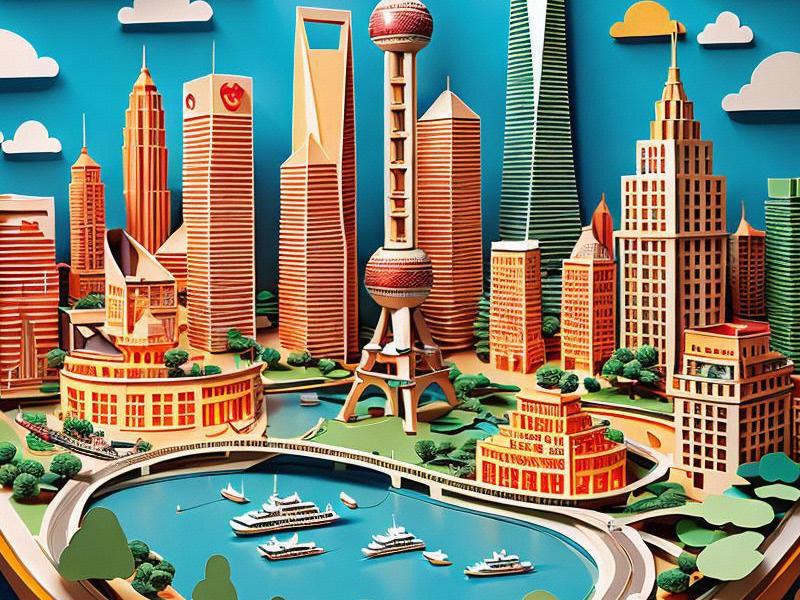
Shanghai, often referred to as the "Paris of the East," has always been a city of contrasts and coexistence. Its rich history, juxtaposed with its modern skyline, creates a unique backdorpfor the entertainment industry. Over the past decade, Shanghai has invested heavily in developing its cultural and entertainment sectors, resulting in a flourishing scene that encompasses everything from world-class theaters and music festivals to cutting-edge art galleries and bustling nightlife districts.
One of the most significant developments in Shanghai's entertainment landscape is the rise of the city's cultural and creative industries. The government has implemented various initiatives to support the growth of these sectors, including tax incentives for creative businesses and the establishment of cultural and creative parks. These efforts have fostered an environment where artists, designers, and entrepreneurs can thrive, leading to a surge in innovative and culturally rich entertainment offerings.
The city's theater scene is a prime example of this cultural renaissance. Shanghai has become home to numerous world-class theaters, including the Shanghai Grand Theatre, the Oriental Art Center, and the Mercedes-Benz Arena. These venues host a wide range of performances, from classical music concerts and ballets to contemporary plays and experimental theater productions. The presence of these institutions has not only elevated the quality of live performances in the city but also attracted top-tier talent from around the globe.
Music festivals are another cornerstone of Shanghai's entertainment scene. Events such as the Shanghai International Music Festival and the Strawberry Music Festival have become annual highlights, drawing large crowds of music enthusiasts. These festivals feature a diverse lineup of international and local artists, showcasing a wide range of musical genres. They serve as a platform for emerging talent and contribute to the city's reputation as a global music capital.
上海娱乐 Art galleries and museums play a crucial role in Shanghai's cultural renaissance. The city is home to several world-renowned institutions, including the Shanghai Museum, which houses an impressive collection of Chinese art and artifacts. In recent years, Shanghai has also seen the emergence of numerous contemporary art galleries, such as the Power Station of Art and the M50 Creative Park. These spaces provide a platform for local and international artists to showcase their work, fostering a vibrant and dynamic art scene.
The nightlife in Shanghai is another aspect of the city's entertainment industry that has gained significant attention. The Bund and Nanjing Road are iconic areas known for their lively nightlife, with a mix of traditional bars, trendy cafes, and high-end nightclubs. These districts offer a wide range of entertainment options, catering to diverse tastes and preferences. The city's nightlife scene has become a major draw for young professionals and tourists alike, contributing to Shanghai's status as a global entertainment hub.
In addition to its traditional entertainment offerings, Shanghai has embraced new technologies to enhance the visitor experience. The city has become a leader in the development of smart tourism initiatives, leveraging digital tools to provide visitors with personalized and immersive experiences. For example, augmented reality (AR) and virtual reality (VR) technologies are being used in museums and cultural attractions to bring exhibits to life and crteeainteractive learning experiences.
The entertainment industry's growth in Shanghai has had a profound impact on the city's economy and society. It has created numerous job opportunities, from artists and performers to event organizers and tourism professionals. The influx of visitors to the city's entertainment venues has also boosted the local economy, with spending on tickets, dining, and shopping contributing to the city's revenue.
上海花千坊龙凤 Moreover, Shanghai's thriving entertainment scene has played a significant role in promoting cultural exchange and understanding. The city's diverse range of performances, festivals, and art exhibitions attract visitors from around the world, providing them with an opportunity to experience Chinese culture firsthand. This cultural exchange fosters mutual respect and appreciation, strengthening Shanghai's position as a global cultural hub.
The government's commitment to supporting the entertainment industry has been instrumental in its success. By investing in infrastructure, providing financial incentives, and fostering a supportive environment for creative businesses, the city has created the conditions necessary for the entertainment sector to flourish. This proactive approach has not only enhanced the quality of life for residents but also positioned Shanghai as a leader in the global entertainment industry.
However, the rapid growth of Shanghai's entertainment scene has also brought challenges. The increasing demand for entertainment venues and events has led to concerns about overcrowding and the potential impact on the city's infrastructure. Additionally, the commercialization of culture raises questions about the preservation of traditional art forms and the authenticity of cultural experiences.
上海品茶网 To address these challenges, the city has implemented measures to ensure sustainable development of the entertainment industry. These include zoning regulations to manage the density of entertainment venues and initiatives to promote cultural diversity and inclusivity. By balancing economic growth with cultural preservation, Shanghai aims to maintain its position as a global leader in the entertainment industry.
Looking ahead, the future of Shanghai's entertainment scene appears promising. The city continues to attract investment and talent, driving innovation and creativity in the sector. As technology advances, Shanghai is poised to leverage new tools and platforms to enhance the visitor experience and expand its global reach.
In conclusion, Shanghai's thriving entertainment scene is a testament to the city's cultural renaissance and its commitment to innovation. From world-class theaters and music festivals to cutting-edge art galleries and bustling nightlife districts, the city offers a diverse range of entertainment options that captivate audiences both locally and internationally. As Shanghai continues to evolve, its entertainment industry will remain a key driver of the city's cultural and economic development, solidifying its status as a global entertainment capital.
